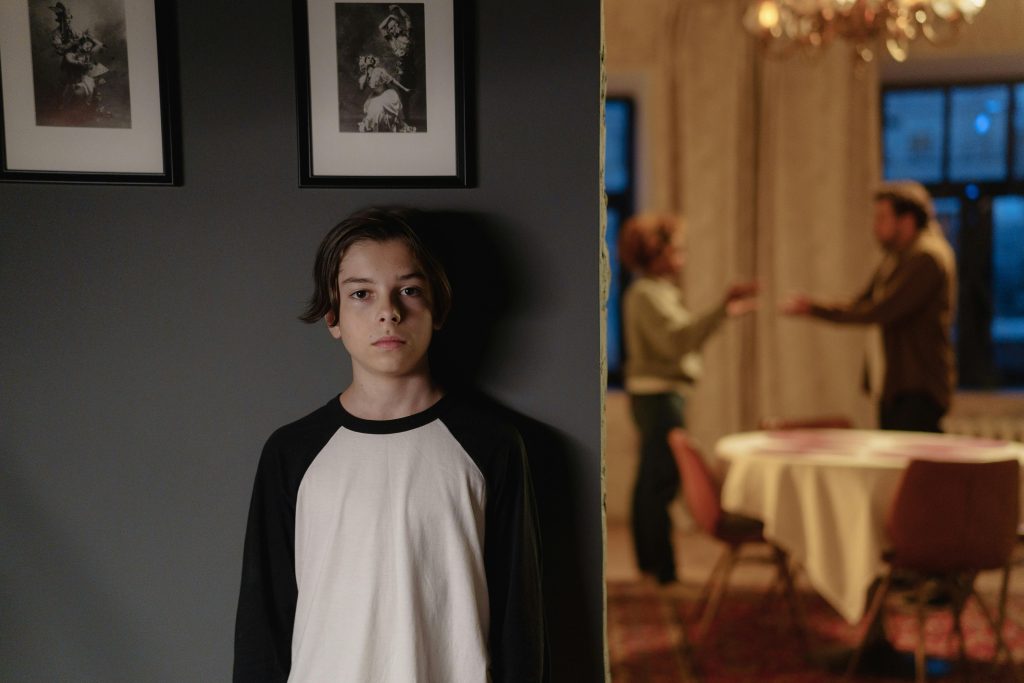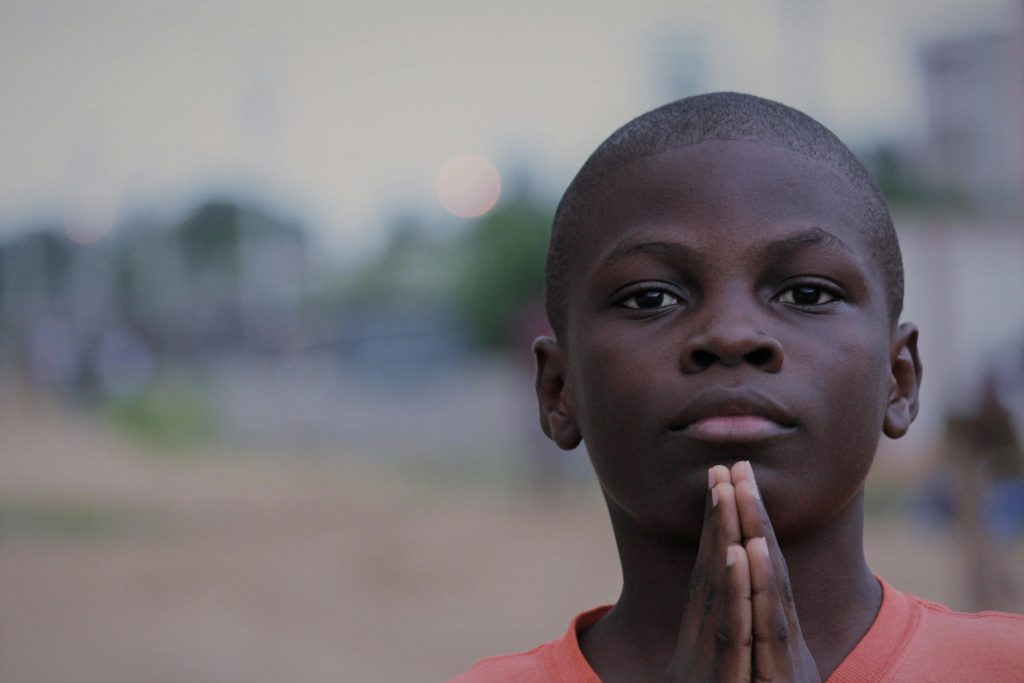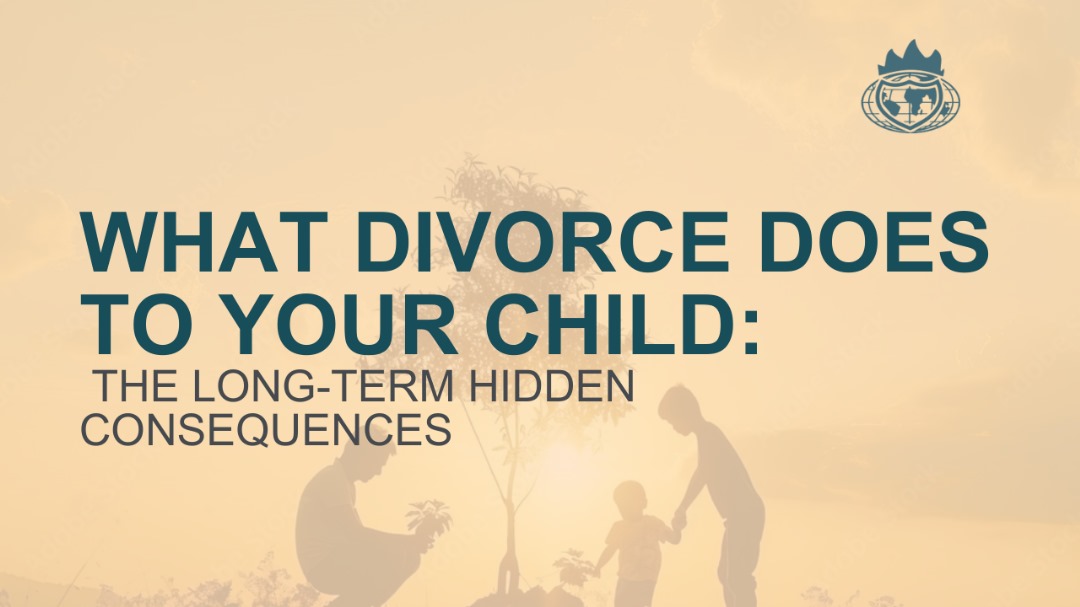The Long-term Hidden Consequences of Divorce and Toxic Parenting
Jayson was only eight years old when his parents divorced. He didn’t understand why his father suddenly packed his bags and left or why his once vibrant home had turned cold overnight. He couldn’t comprehend why his mother cried herself to sleep every night or why the warmth in their family had been replaced with silence.
At first, he convinced himself that it was just a bad dream, one he would eventually wake up from, but the reality lingered. His father moved into a small apartment across town, and his mother, who was once full of life, became distant, drowning in her pain.

Jayson struggled to adjust to his new reality: weekdays with his mom and weekends with his dad. Each transition felt like being torn in half. The boy who once filled rooms with laughter now barely made a sound. He dreaded moving between two homes, yet neither of his parents noticed that he had stopped talking like he used to.
Lost in their grief and anger, they unknowingly placed him in the middle, forcing him to choose sides, using him as a messenger, and sometimes making him feel guilty for loving the other parent. The warmth of family dinners was replaced with tense, awkward visits. Bedtime stories gave way to tears and unanswered questions.
Jayson didn’t just lose the family he once knew; he also lost his childhood. Even if his parents moved on and healed in their own ways, the scars on his heart would take much longer to fade. He carried a weight he didn’t know how to put into words.
The Overlooked Impact of Divorce
We often focus on legal battles, financial struggles, and social adjustments when we think about divorce, yet the emotional toll it takes on a child is frequently overlooked.

There is no situation as challenging for children as the aftermath of their parents’ separation. The sense of stability they once relied on is suddenly gone, replaced by uncertainty, loneliness, and emotional turmoil, and when toxic parenting is involved, the damage can be even greater.
The Silent Harm of Toxic Parenting
A broken home is painful enough, but being raised by toxic parents adds another layer of trauma. Toxic parenting can manifest in various ways: physical, emotional, or verbal abuse.
While physical abuse leaves visible scars on victims, verbal abuse often goes unnoticed, even though its effects can be more damaging.
Many parents mask harsh words under the guise of “discipline” or “tough love,” unaware of the deep wounds they inflict, and over time, their children withdraw, choosing silence over the risk of further pain and criticism.
Toxic parenting extends beyond words; it also includes neglect. Neglect is not just about failing to provide food and shelter; it can be emotional as well. A child who grows up without comfort, reassurance, or quality time may feel invisible and unimportant.

Even seemingly small actions like leaving a child in the care of someone incapable or dismissing their emotional needs can leave lasting scars on them. Raising a child is not just about meeting physical needs; it’s about making them feel loved, valued, and supported every step of the way. You must create a safe, supportive environment where your children feel valued and heard.
Discipline is important, but so is connection. A single heartfelt conversation today could be the lifeline a child needs to open up about their struggles tomorrow.
Breaking Free from the Past
Sadly, many adults today struggle with self-esteem issues and emotional wounds that are rooted in toxic parenting and broken homes. They carry the weight of harsh words spoken over them, neglect, and experiences that have shaped their sense of worth.
In the Bible, Moses experienced something similar. He was called a murderer after killing an Egyptian in an attempt to protect his people. He internalised this label, and when God later called him to lead the Israelites, he felt unworthy. He let his past mistakes and inadequacies define him. Many of us do the same. We disqualify ourselves from happiness, success, and healing because of our past, what was done to us or what we’ve been led to believe about ourselves. But the truth is, no past is too broken for redemption.
Maybe someone failed you, hurt you, abandoned you, or took something from you that you can never get back. Your pain is real, and it deserves to be acknowledged, but allowing that pain to define your life will only prolong your suffering. Unresolved pain has a way of making its victims bleed on innocent people. Enough damage has already been done; don’t give your past the power to rob you of your future. You deserve to heal. You deserve to move forward. You deserve to reclaim your life.
“Forgetting what is behind and straining toward what is ahead, I press on toward the goal to win the prize for which God has called me heavenward in Christ Jesus” (Philippians 3:13-14).
When you hit rock bottom, it is not a time to turn away but a time to fix your gaze on God and ask for help.
Instead of sharing your struggles with people who may hurt you further, turn to God; He is the one who can truly help. “The Lord is close to the brokenhearted and saves those who are crushed in spirit.” (Psalm 34:18).
No hurt is too deep, no shame is too heavy, and no word is too damaging for God’s grace to overcome. In Him, you can find the courage to rise above your past and step into the fullness of who you were created to be (2 Cor. 12:9)



BRILLIANT AND INSIGHTFUL.🙏